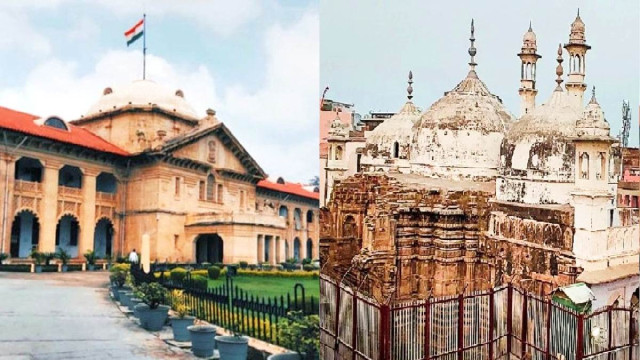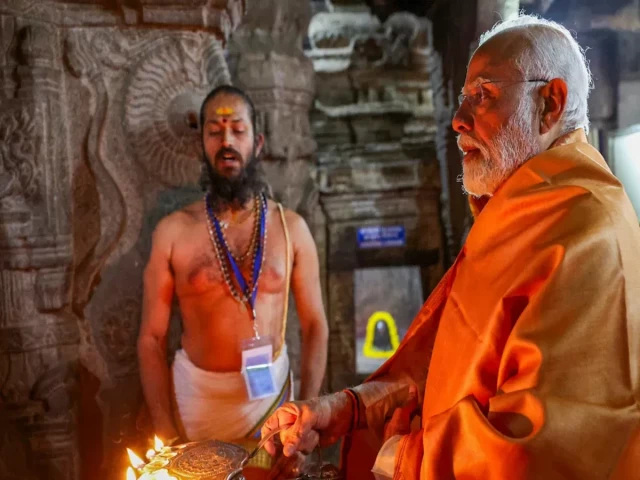Gyanvapi Mosque Verdict Stirs Controversy: AIMIM Chief Criticizes Violation of Worship Act
- Posted on February 1, 2024
- Religious
- By Arijit Dutta
- 356 Views
The Varanasi court's decision permitting Hindu worship in Gyanvapi mosque's southern cellar sparks controversy, with AIMIM chief Owaisi alleging a violation of the Places of Worship Act. Despite objections, the Vyasa family is allowed to resume religious rituals, concluding a long-standing legal battle.
 Image Source -www.en.etemaaddaily.com
Image Source -www.en.etemaaddaily.com
In
a contentious verdict, the Varanasi district court has allowed Hindu devotees,
including the Vyasa family, to offer prayers in the southern cellar of the
historic Gyanvapi mosque. This decision has stirred a heated debate, with AIMIM
chief Asaduddin Owaisi condemning it as a violation of the Places of
Worship Act.
Owaisi,
expressing his dissatisfaction, criticized the timing of the decision,
highlighting that it coincided with the judge's last day before retirement. He
raised concerns over the appointment of the District Magistrate as the receiver
and the swift issuance of the verdict. According to Owaisi, the judge's
assertion that no prayers had taken place since 1993 raises questions about the
knowledge of an idol's existence inside, deeming it a violation of the Places
of Worship Act.
The AIMIM chief also pointed out the discrepancy in the court's timeline, emphasizing that a mere seven days were given to open the grills, denying sufficient time for an appeal. He linked this decision to the Modi government's stance on the Places of Worship Act, stressing that unless clarified, the controversy would persist. Owaisi reiterated his long-standing concern, questioning why lower courts are not aligning with the Supreme Court's recognition of the Places of Worship Act as part of the basic structure.
Also Read: Iran-Backed Militia Accused By US In Fatal Drone Attack On American Troops In Jordan
Despite Owaisi's objections, the Varanasi court ruled in favor of allowing Hindu devotees to worship in the sealed basement, known as 'Vyas Ka Tekhana,' within the Gyanvapi mosque. The Vyasa family, who had historically conducted religious ceremonies in the basement until 1993, is now permitted to resume these rituals. The court instructed the district administration to facilitate the arrangements for Hindu worship within the next seven days, signaling the end of a protracted legal battle.




